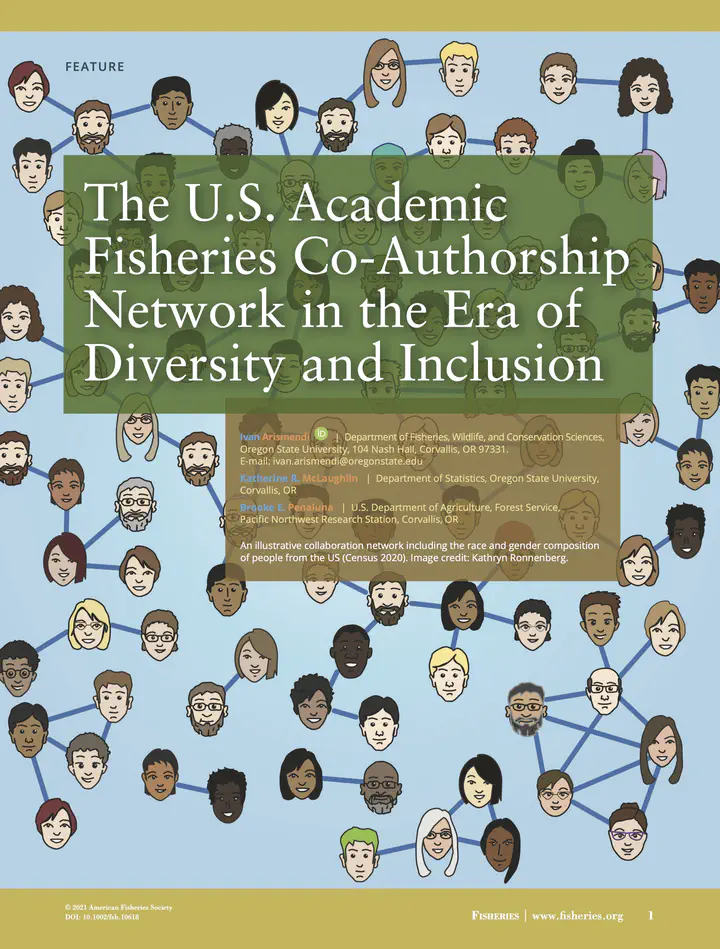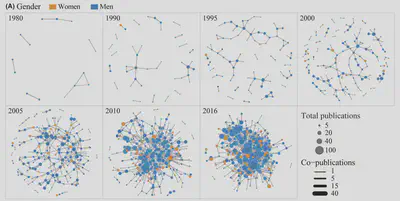The U.S. academic fisheries co-authorship network under the lens of diversity and inclusion

Abstract
The inclusion of diverse individuals in ecological sciences has shown little progress over the past 2 decades for various reasons, including structural barriers in societies, organizations, and academia. Collaboration networks are important for productivity, promotion, and scientific impact, yet the extent to which the structure of these networks affects the inclusion of minoritized people remains unknown. Here, we evaluated trends in published research between 1965 and 2017 within the U.S. fisheries science academic co-authorship network and evaluated its structural composition, focused on gender and race/ethnicity. Although the number of publications, number of authors per article, and lead authorship by women and people of color have increased over time, white men still lead more than 70% of published articles. Network analysis demonstrates a shift in the structure of the network over time from an initial concentration of research among a few fragmented clusters to a nearly completely connected network by 2016. However, centrality metrics for women and people of color consistently showed lower scores, suggesting that their integration into the network remains incipient. Our findings illustrate that although progress has been made towards the inclusion of diverse talent in fisheries science over time, continued progress requires strategic, explicit efforts to overcome biases and barriers.
